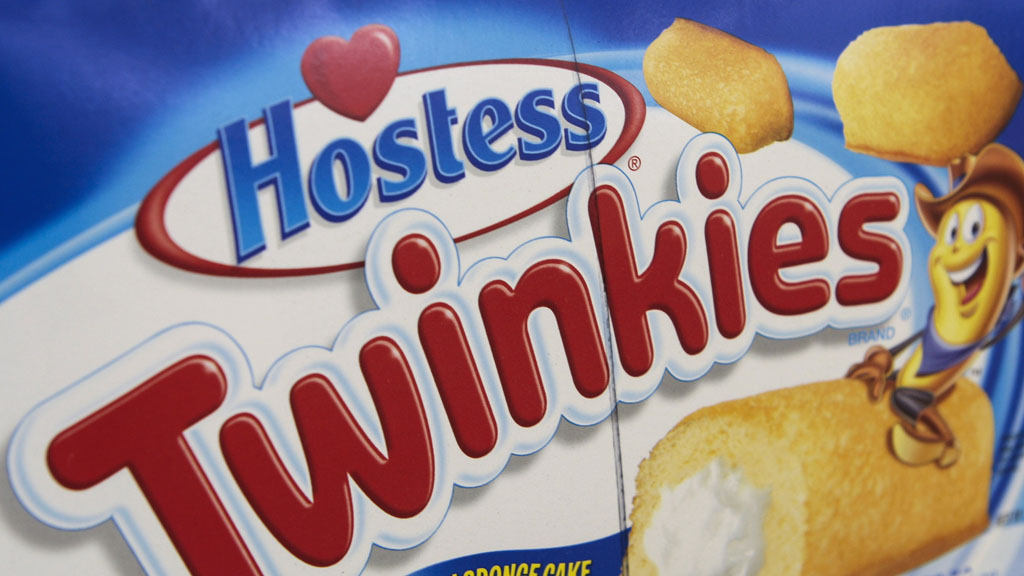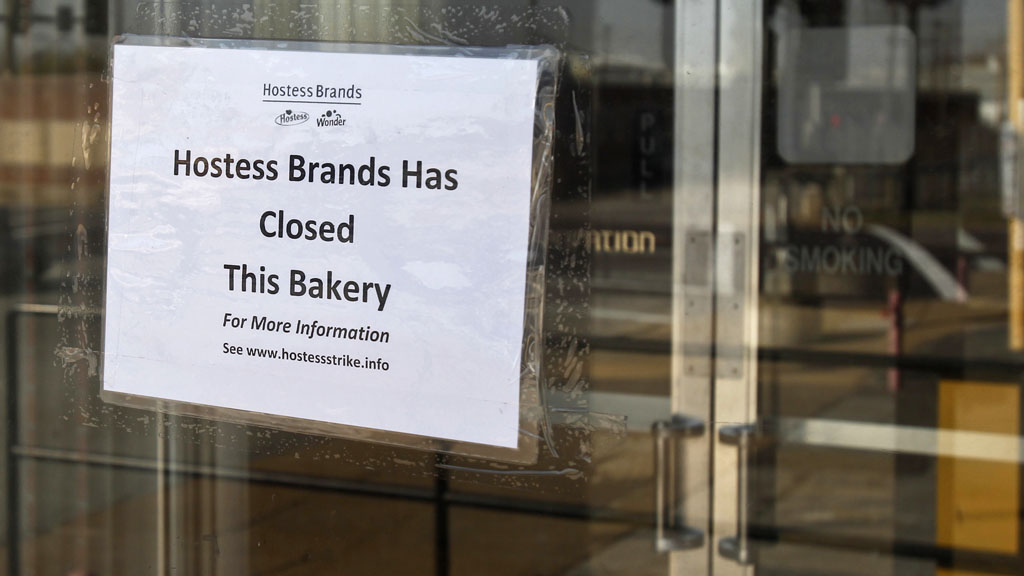America says goodbye to Twinkies, Ho Hos and Ding Dongs
Does the demise of one of America’s favourite junk food brands mark a turning point in the nation’s eating habits, asks Felicity Spector?

If you’ve never tried a Twinkie, it’s too late. The company behind the iconic American snack is going under – taking with it 18,500 jobs and an entire era of the nation’s junk food past.
Gone, then, are Twinkies, the cellophane-wrapped rolls of soft sponge-like cake, each hiding a wodge of creamy gunk within. Gone too are Wonder bread, Ho Hos and Ding Dongs, We may never see their like again.
As news spread of the demise of Hostess Brands, nostalgic sweet-lovers dashed to their local supermarket, emptying the shelves, eager suddenly to get their hands on a dessert that had long gone out of fashion.
The company, now owned by two hedge funds, blamed a dispute with the unions over wages and benefits. “Everybody will eventually lose their jobs, sooner or later”, said Hostess spokeswoman Tammy Taylor.
So after more than eighty years, the Texas-based firm has suspended all operations and has asked a judge for permission to go out of business.
They’re hoping to sell the brand names themselves, along with much of the infrastructure. Perhaps a buyer will swoop in and save the Twinkie for posterity.

The Twinkie defence
After all, the snack even has a place in legal history: the so-called Twinkie defence, after a lawywer argued that his client should not be prosecuted for murder because his mental capacity had been so diminished by the amount of junk food he ate.
So does this say more about a newly sophisticated American palate, one that is finding the pre-packaged snack famous for its apparently timeless shelf life simply indigestible?
Sales of Twinkies have been falling steadily over the last year, according to Mintel, while what some might call their trashier cousins, the Ho Hos, were performing even worse. Fancy a Ding Dong with that? Apparently not.
Smaller firms, and private labels stocked by individual stores have been stealing market share instead: in an age where niche targeting is king, perhaps snacks designed for the masses simply won’t cut it any more.
The new America – the post-racial, tolerant, the young and dynamic America that voted Barack Obama into a second term – did not grow up on Twinkies and Wonder bread: like the Republican Party, they seem like relics from a bygone, 1950s age.
Junking the junk?
Or perhaps it’s a health thing, along with restaurant chains having to publish the calories in their super-sized pizzas and their monster cookies, and New York‘s ban on ridiculously enormous fizzy drinks.
Could this be a sign that the nation’s love affair with junk food, with the cheap, the processed and the convenient, is on the wane?
Some hope. While the educated middle classes flock to their farmers’ markets for overpriced organic arugula and 72-day aged grass-fed beef, rightly celebrating a new dawn in localism and food culture, that all remains far beyond the reach of millions of people struggling to make ends meet.
Yet the Twinkie has itself fallen victim to the harsh austerity of today’s economy: there will be no wallowing in nostalgia for the hedge funds that control its destiny, save the hope that someone will step in and buy up the brand-names, for their own sake.
Screw the fiscal cliff!Where’s the Twinkie bailout?!
— Danny Zuker (@DannyZuker) November 16, 2012
Former White House pastry chef Roland Mesnier was – perhaps surprisingly – one of those mourning its passing: he told the Washington Post it wasn’t a bad product.
“Twinkies are as much an American icon as a Ford motor vehicle or other American ingenuity”, he said.
And on Twitter, fans have been bemoaning their loss: Screw the fiscal cliff, wrote TV producer Danny Zuker, – Where’s the Twinkie bailout?
In the meantime, the Twinkie has been enjoying a moment, a rush to grab the last shiny packages from the shelves.
Buy now, while stocks last. On Ebay, they’ve been changing hands for a hundred dollars or more. Now that’s modernity.
Felicity Spector writes about US affairs for Channel 4 News